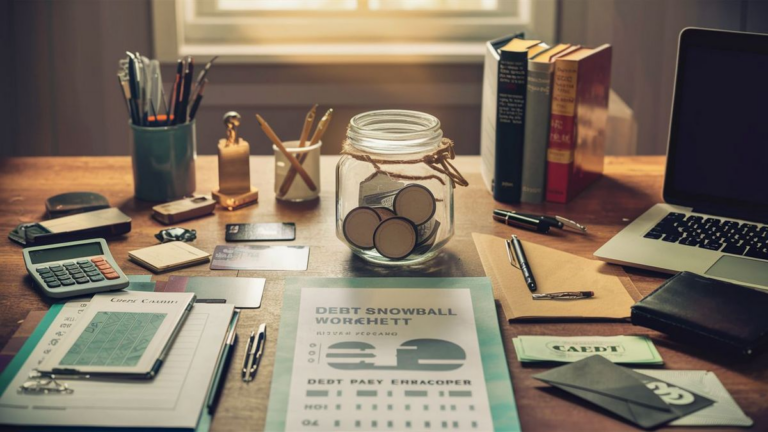In today’s financial landscape, credit card debt has become a common burden for many individuals. If you find yourself grappling with credit card debt, you’re not alone. However, it’s crucial to take proactive steps to manage and ultimately eliminate this debt to secure your financial future. In this comprehensive guide, we’ll explore the best strategies to pay off credit card debt effectively.
Create a Budget and Stick to It
The first step towards paying off credit card debt is to gain a clear understanding of your financial situation. Start by creating a detailed budget that outlines your monthly income and expenses. Identify areas where you can cut back on spending and allocate those savings towards paying off your credit card debt.
Prioritize High-Interest Debts
Not all debts are created equal. High-interest credit card debts can quickly spiral out of control if left unchecked. Prioritize paying off debts with the highest interest rates first while making minimum payments on other accounts. This strategy will save you money on interest payments in the long run.
Consider Debt Consolidation
Debt consolidation involves combining multiple debts into a single loan with a lower interest rate. This can make it easier to manage your debt and potentially reduce the total amount you owe. Explore options for consolidating your credit card debt, such as personal loans or balance transfer credit cards.
Increase Your Income
Boosting your income can accelerate your debt repayment efforts. Consider taking on a part-time job, freelancing, or selling unused items to generate extra cash. Direct these additional funds towards paying off your credit card debt more quickly.
Negotiate with Creditors
Don’t hesitate to reach out to your creditors to negotiate better terms or payment plans. Many creditors are willing to work with you to create a more manageable repayment schedule. Be honest about your financial situation and explore options for reducing interest rates or waiving fees.
Utilize Windfalls Wisely
If you receive unexpected windfalls such as tax refunds or bonuses, resist the temptation to splurge and instead use these funds to pay off your credit card debt. Applying windfalls towards debt repayment can significantly accelerate your progress towards financial freedom.
Seek Professional Help if Needed
If you’re feeling overwhelmed by your debt or struggling to make progress, don’t hesitate to seek professional help. Credit counseling agencies and financial advisors can provide valuable guidance and support to help you develop a customized debt repayment plan.
Stay Committed and Persistent
Paying off credit card debt requires patience, discipline, and perseverance. Stay committed to your repayment plan and celebrate small victories along the way. Remember that every payment brings you one step closer to achieving your goal of financial freedom.
By implementing these strategies and staying focused on your financial goals, you can successfully pay off your credit card debt and take control of your financial future.
Tracking Your Progress
Monitoring your progress is crucial in your journey to pay off credit card debt. Keep track of your payments, outstanding balances, and any changes in interest rates. This helps you stay accountable and motivated as you work towards becoming debt-free.
Using Apps and Tools
Consider using financial management apps or spreadsheets to track your progress efficiently. These tools can provide visual representations of your debt reduction journey, making it easier to stay organized and motivated.
Setting Milestones
Set achievable milestones along the way to celebrate your progress. Whether it’s paying off a certain percentage of your debt or reaching a specific dollar amount, milestones can keep you motivated and focused on your ultimate goal of debt freedom.
Frequently Asked Questions
| Question | Answer |
|---|---|
| Is it advisable to close credit card accounts after paying off the debt? | Closing credit card accounts after paying off the debt can affect your credit utilization ratio and credit history. It’s generally recommended to keep the accounts open, especially if they have a long history, to maintain a healthy credit score. |
| What if I can’t afford to make more than the minimum payments? | If you’re unable to pay more than the minimum payments, consider contacting your creditors to discuss hardship programs or alternative repayment plans. Additionally, focus on increasing your income or reducing expenses to free up more money for debt repayment. |
| How long does it typically take to pay off credit card debt? | The time it takes to pay off credit card debt varies depending on factors such as the total amount owed, interest rates, and your repayment strategy. With dedication and consistency, many individuals can pay off their credit card debt within a few years. |
See also:






